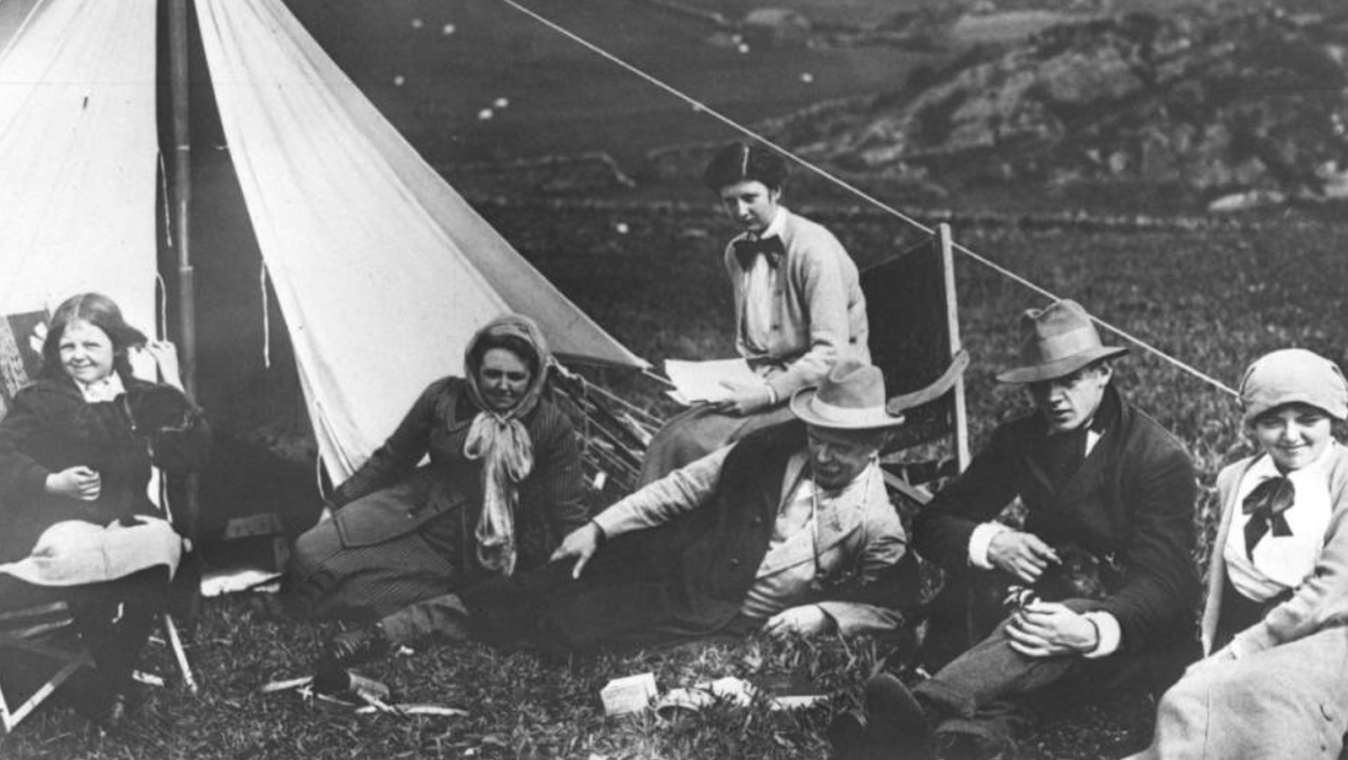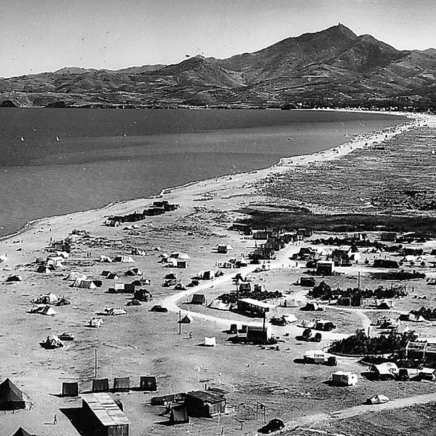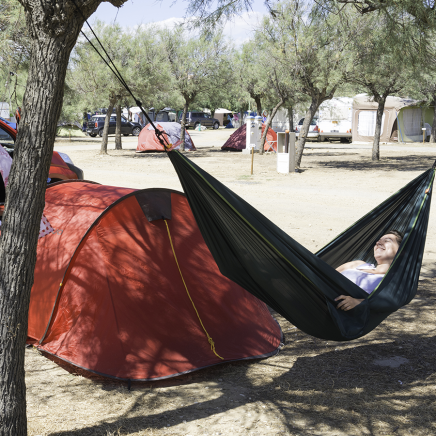The history of camping in France
The saga of camping, a story of nature!
handed down from generation to generationIn Roman times, during their military campaigns, soldiers lived on "campuses" in Latin tents called "pagan". Here's a look back at the origins of camping and its development in France.
What is the origin of the word camping?
Is camping an English word, as its sound suggests? Not quite. The word "camping" refers to the English word "to camp", meaning "to set up camp", but also derives from the Latin word "campus", meaning "field". In French, the word "camping" refers to the old expression "faire campos," used in the 19th century to designate the cessation of school so that children could help their parents with farm work.
Of course, as camping has evolved, so has its meaning. Today, camping refers to the outdoor activity of sleeping in a tent, caravan, mobile home, bungalow or chalet.
A pastime reserved for the elite
In France, the word camping first appeared in 1898, when Lucien Baudry de Saunier, a travel writer, published his trip to England in the Touring Club de France magazine. He recounted his encounters with English aristocrats touring their immense estates in trailers. At the time, camping was a leisure activity reserved for a privileged social class: city dwellers seeking to escape polluted city air and live in the heart of nature. The 19th century therefore saw the birth of camping in a very different form to the one we know today.
Camping becomes more democratic
Camping, once associated with the bourgeoisie or scouting, became more democratic with the advent of the first paid vacations. A real social revolution was underway, and by the summer of 1936, many French people were heading off to the seaside or mountains for the first time. From then on, camping was no longer the preserve of a privileged few - it was accessible to all! For thousands of French people, it was a dream come true, and the Trigano family played a major role in making it happen.
Camping is TRIGANO
TRIGANO's history dates back to 1935, when the TRIGANO family started selling textile products under the TRIGANO name. The following year saw the first paid vacations, and TRIGANO supplied holidaymakers with their first tent fabrics. These were the beginnings of camping, which TRIGANO would accompany throughout the century. In 2021, having become a symbol of vacation, escape and freedom for the French, the TRIGANO brand created "La 1936," a Canadian tent whose name and iconic shape echo the year of the first paid vacations.
The camping boom
In the 1950s, camping became increasingly popular with French people looking for a family vacation at a reasonable price. The main thing was to go on vacation, even if it meant spending a little less. And when you're camping, everything becomes fun, even washing up! The first official campsites, known as "campings municipaux", began to develop.
In the 1960s and 1970s, camping became a real way of life, and enjoyed growing success. With the arrival of caravans, vans, motorhomes and combis, camping was transformed. Freedom means having your own home on four wheels, with an engine! The Volkswagen combi converted into a Power Flower motorhome became the emblem of the hippie generation. In the years that followed, campsites modernized and multiplied. From the most natural to the most star-studded, they offered swimming pools, children's playgrounds and a wide range of activities... The success of campsites reached new heights.
Camping today
A family or friends adventure, living close to nature, discovering France.... For many French people, camping is a dream, and there's no shortage of options for making it come true. Campers, always on the lookout for new experiences, prefer new types of accommodation that are closer to nature, more comfortable and more unusual, such as bungalows, mobile homes, cottages, lodges, tree houses... There's a campsite for everyone, because the open-air hotel industry has always adapted to the times and reinvented itself. It's hardly surprising that today, having stood the test of time, camping has become the preferred form of accommodation for the French. So, are you still ready to pitch the tent?
The first camper photos



